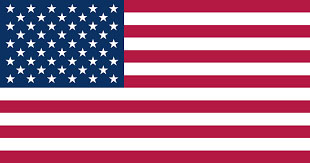US defies appeals to back UN resolution for urgent Gaza ceasefire

CAIRO. — The rejection of a US-proposed draft resolution on a Gaza ceasefire at the UN Security Council la Friday has highlighted the “increasing global isolation” of the United States, experts said.
Adel Abdel Ghafar, director of the Foreign Policy and Security Program of the Middle East Council on Global Affairs in Doha, said the resolution “does not go far enough and lacks specifics to stop Israel from further carrying out a carnage of Palestinians and thus it was vetoed. The veto highlights the growing global isolation of the United States and Israel.”
The US-led draft, presented to the Security Council a month after its veto of an Algeria-proposed draft resolution demanding an immediate ceasefire in the Gaza Strip, was not adopted last Friday, with 11 votes in favour, three against, and one abstention.
MOST IMPORTANT ISSUE REMAINS UNADDRESSED
Algeria’s permanent representative to the United Nations, Amar Bendjama, told the Security Council on Friday that the US draft resolution would have allowed “continuing bloodshed.”
Bendjama added that since the United States circulated its draft over a month ago, Algeria had proposed reasonable edits to achieve a “more balanced and acceptable text.” He acknowledged that some of their proposals had been included, but “core concerns remained unaddressed.”
Bendjama has emphasised the urgency of an “immediate ceasefire” to prevent further loss of life, but regrettably, the draft fell short, and his country had therefore voted against it.
China’s permanent representative to the United Nations, Zhang Jun, said the draft “evaded and dodged the essential issue, that is a ceasefire.” The ambassador said China rejects the accusations by the United States and Britain against China’s voting position.
“Those are groundless accusations. If the US were serious about a ceasefire, it wouldn’t have vetoed time and again multiple council resolutions and wouldn’t have taken such a detour and played a game of words while being ambiguous and evasive on critical issues,” he said. Before the vote, Russia’s permanent representative to the United Nations, Vassily Nebenzia, criticised the diluted language of the US resolution. He said the text did not call for a ceasefire and accused U.S. leadership of “deliberately misleading the international community.”
According to an AP report on Saturday, a key issue (of the US resolution) was the unusual language that said the Security Council “determines the imperative of an immediate and sustained ceasefire.” The phrasing was not a straightforward “demand” or “call” to halt hostilities.
Sherine Tadros, UN representative of Amnesty International, described the US resolution as “an attempt by the US to absolve themselves of the abysmal record Biden has had so far on Gaza and submit a resolution that is not going to end the war.”
“This moment requires unequivocal action by the security council, whose mandate is to maintain international peace and security, calling for an immediate ceasefire,” said Tadros. “It shouldn’t really be so hard for them to do that.”
“The most significant issue (in the U.S. resolution) is the prioritization of the so-called hostages’ interests over those of civilians, implying that detention has become more important to Washington than the killings and destruction inflicted by its ally, Israel,” said Nabil Kahlouche, a strategic studies specialist from the Algiers-based National Institute of Strategic Global Studies.
RESOLUTION WITH “CLEAR FALLACIES”
“Algeria, along with other countries, rejected the American draft resolution because it contains clear fallacies,” said Kahlouche.
Kahlouche pointed to the implicit bargain embedded within the resolution, where a ceasefire is tied to the release of Israeli detainees. He argued that this contradicts the logical sequence of events, saying, “releasing detainees should follow the cessation of aggression, not vice versa.”
Saeed Okasha, an expert at Cairo-based Al-Ahram Centre for Political and Strategic Studies, said he had expected the rejection of the U.S. draft resolution “because it does not include any obligation and its wording suggests a ceasefire in Gaza but without binding terms.”
“The US draft resolution failed to oppose Israel’s planned invasion of the city of Rafah in Gaza. This is what U. President Joe Biden said before. He does not oppose Israel’s invasion of Rafah but objects to doing it in the presence of Palestinian civilians. Instead, he urges Israel to present a plan for the transfer of civilians from Rafah before its invasion,” he said. — Xinhua.









Comments